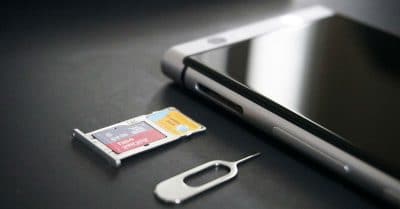A Guide to Mobile Contract Early Exit Fees: What Happens When You Cancel Your Mobile Contract Early
Signing up for a mobile contract can seem like the easiest thing in the world. Choose your plan, sign on the dotted line, and then you’ve got all the minutes, texts and mobile internet that you want. But what happens if you want to cancel that contract? Maybe you’ve found a better deal elsewhere, maybe you can’t afford your current plan, or maybe you’ve just changed your mind. If you want to cancel that contract though, you’re going to have to take into account early exit fees. What are they? How much are they? Do you have any alternatives? We’ve got the answers to all those questions and more.
What are Early Exit Fees and Why Do They Exist?
Okay, the first thing that you should know is that your mobile contract is basically a promise that you will pay your network a certain amount of money. Let’s say that you’re signing up for a 24-month contract with Vodafone for a service package that costs £20 per month. Your contract is a promise that you’re going to pay Vodafone £480 (£20 x 24).
If you decide that you want to break this contract and you're outside the cooling off period, then you’re breaking your promise to pay a total of £480, and this doesn’t make Vodafone very happy (understandably). So, Vodafone will make you pay an early exit fee to make up for some (or all) of that money you promised to pay and are now saying that you don’t want to.
Early exit fees are common in the mobile industry and nearly all operators have them. Different operators have different methods of calculating this fee, which we’ll get into in a moment. There are a couple of ways you might avoid paying an early exit fee, but to be honest, the chances are that you’re going to end up paying at least some cash if you want to break that contract.
Wait, I’m PAYG!
If you’re a pay as you go customer, then you don’t need to worry about early exit fees. You’re able to leave an operator and switch to another whenever you like, you don’t even need to tell your old operator that you’re leaving (unless you want to keep your phone number, in which case you’ll need to coordinate between your old and new operators). You will lose any unused credit in your account if you stop using your old SIM card, but that’s easily avoided by using up your remaining credit before switching.
Hold On, I’ve Got a 30 Day Contract…
30-day rolling contracts are becoming more and more common in the UK. And if this is the kind of contract you have, you also don’t really need to worry about early exit fees. Simply wait until your current 30 day period is over and cancel the auto-renewal. There’s really little point in breaking a 30-day contract since the amount of time you’ll have to wait to finish out the contract period is so short.
Okay, So I’ve Got a 24 or 12 Month Contract…
Right, it’s you that we’re talking to. If you’re on a long term contract (12 or 24 months, sometimes even 18 months) then you need to be worried about early exit fees should you decide to break that contract. How much should you be expecting to pay? That’s going to depend. Some networks charge a flat fee, but most don’t.
Most networks charge a fee multiplied by the number of months left in your contract. So if you’re three months into a twelve-month contract, your exit fee will be the network’s fee multiplied by nine (12 months minus the three months you’ve had the contract for). But let’s take a look at that in more detail.
Early Exit Fees by Operator
Fees vary according to which operator you’re with. Below you’ll find a list of the early exit conditions with most of the UK’s major operators:
EE
EE call their early exit fees an “Early Termination Charge (ETC).” They calculate this as 96% of the remaining cost left on your bill minus VAT. So, let’s say you’re paying £20 a month on a 24-month contract, and you’re ten months through that contract. Your early exit fees will be £20 multiplied by 14 (the remaining number of months left in your contract), giving you £280. The VAT will be subtracted from that (leaving you with £233), and then 4% of the total will be subtracted (because EE only wants 96% of the remaining payments), leaving you with your total of £223.68.
O2
O2 are a little less clear about what they’re looking for to exit your contract. If you’re on the Refresh programme then you can cancel penalty free with 30 days notice (but you’ll need to pay off the balance on any phones attached to the contract). For a regular 24 month contract O2’s terms simply say that they require the remaining balance to be paid off. That means that if you’re 20 months into a 24-month contract, they’ll require 4x your regular monthly payment (to cover the four remaining months). However, their terms also state that you should call their customer service number (202) to find out exactly how much the fee will be, so there’s a chance that you could pay a little less than you expect.
Vodafone
If you’re new to your Vodafone contract then good news, thanks to Vodafone’s “30-day network guarantee” you’re free to cancel your contract any time within the first 30 days of signing without penalty. If you’re not a new customer, then Vodafone will be looking for 98% of the remaining monthly payments minus VAT. So, if you’re paying £15 a month on a 24 month contract and you’re 18 months into the contract your fee will be as follows: £15 x 6 (six months remaining in the contract)= £90, minus VAT= £75, minus 2% (because Vodafone only want 98%)= £73.50.
Three
Three make things pretty easy. You’ll pay whatever the remaining costs of your contract are, minus a discount of 20% (though they do state that this discount can change at any time, so double check with customer service before cancelling). This means that if you’re paying £25 a month on a twelve-month contract and you’re two months into that contract your early exit fee will be £250 (£25 x ten months remaining) minus 20%, so a total of £200.
Giffgaff
Giffgaff only supply pay as you go SIM cards, meaning there are no early exit fees. You’ll need to cancel any automatic payments, but that’s all. However, if you have purchased a phone through the GiffGaff Store, you’ll need to contact the store to deal with paying off the phone itself.
iD Mobile
If you’re with iD Mobile then things are a bit more secretive… Firstly, if you signed up in person at a store you have 14 day to cancel the contract penalty free. If you signed up online then you have 30 days to cancel the contract penalty free. Everyone else will need to pay an early exit fee, but that depends on your account. Head into your online iD Mobile account (online or by using the app), hit “My Account,” then “Manage My Plan,” and then “End My Plan.” This will NOT cancel your contract (you’ll need to go through several more steps to do that), but after you hit “End My Plan” you should see a line that says “Estimated Cost of Cancellation.” This is your early exit fee.
Sky Mobile
Sky Mobile do not make things easy, and their cancellation fee depends on which plan you have. You will pay a set fee multiplied by the number of months remaining in your contract (so if you’re 5 months into a 12-month contract, you’ll pay the fee multiplied by 7). The set fee depends on your plan, and the list of fees is:
- £2.41 per remaining month if you’re on the 500 Mb data plan that costs £5 a month
- £3.28 per remaining month if you’re on the 500 Mb data plan that costs £6 a month
- £6.58 per remaining month if you’re on the 1 GB data plan
- £8.23 per remaining month if you’re on the 2 GB data plan
- £10.71 per remaining month if you’re on the 3 GB data plan
- £10.71 per remaining month if you’re on the 5 GB data plan that costs £15 a month
- £14.85 per remaining month if you’re on the 5 GB data plan that costs £20 a month
- £14.85 per remaining month if you’re on the 10 GB data plan
- £8.26 per remaining month if you’re on the Unlimited Calls and Text Saver plan
- £2.50 per remaining month if you’re on the International Calls and Text Saver plan
Tesco Mobile
Tesco Mobile are also a little secretive. Their terms don’t say exactly how much you will pay, but state that the amount will never be more than your regular monthly payment multiplied by the remaining number of months on your contract. In this case, it’s probably best to contact Tesco customer service and ask exactly how much it will be to cancel your contract.
Plusnet Mobile
Since Plusnet Mobile only offer 30-day rolling contracts then it’s best just to wait until your 30-day contract has ended and then cancel. If you must cancel inside that 30 day period you will have to pay the full contract price for that month anyway.
Virgin Mobile
Virgin Mobile call their early exit fees an “Early Disconnection Fee,” and they’re lower than most other operators. There’s a 30 day waiting period to cancel, during which you’ll need to pay the full monthly fee. After the waiting period is over you’ll pay 46% of your regular payments multiplied by the number of months remaining in your contract. So if you’re six months into an 18-month contract at £20 a month you’ll need to pay full price for month seven (because of the waiting period). They will then multiply £20 by 11 (the number of months remaining in your contract after the waiting period), and you’ll pay 46% of the total, so £101.20 (46% of £220).
BT
BT customers will simply pay a set fee multiplied by the number of months left on your contract. The fees are as follows:
- £6.25 per remaining month if you’re on the 500 Mb data plan
- £8 per remaining month if you’re on the 1 GB data plan
- £8.75 per remaining month if you’re on the 3 GB data plan
- £13 per remaining month if you’re on the 6 GB data plan
- £16.25 per remaining month if you’re on the 15 GB data plan
- £22 per remaining month if you’re on the 25 GB data plan
- £28.50 per remaining month if you’re on the 40 GB data plan
If your BT contract includes a phone your set fee will vary depending on the phone you have, so you’ll need to contact BT customer service to find out exactly how much you stand to pay.
Phones, Tablets, and Other Devices…
If there is a device linked to your contract you’ll need to deal with even more fees. If you purchased your mobile phone as part of your contract then in order to cancel with all operators you’ll need to pay off the remaining balance on the cost of that phone. This will depend on the total price of your phone and how much you’ve paid already, so you’ll need to contact customer service for your operator to find out just what that outstanding balance is. And in some cases (with BT notably) you will be required to return that phone if you’re still within a specific time period (within the first 6 months of having the phone in the case of BT).
If you have another device tied to your contract, such as a free tablet or WiFi dongle, or any other hardware associated with your account you may also be required to pay a fee for them when cancelling (even if the device was given as a “free” gift when signing up).
It’s impossible for us to tell you whether or not you’ll need to pay for devices, and if so how much, since it will depend on the device and on the operator. But if you got a device with your contract then you’ll need to call customer service before cancelling to find out how much you’ll be on the hook for.
Can I Avoid These Fees?
Technically, there are ways of avoiding paying cancellation fees. However, and we’ll be honest with you, these avenues are complicated and rarely work, requiring you to show solid proof of an operator not providing you with the service they have promised you. The most common, effective ways to avoid charges are the following:
- If you sign up over the phone or online Consumer Contracts Regulations say that you have a 14 day cooling off period where by law you can cancel the contract without penalty. This does NOT apply to people who sign up in person or in stores.
- If the cost of your set monthly payment goes up by MORE than a similar rise in the Retail Price Index, then OFCOM rules say that you can cancel your mobile contract without penalty.
What If I Don’t Have Reception?
There are no laws saying that an operator has to cancel your contract without a penalty if you have bad reception or no reception at all. However, some operators do have what they call an “acceptable network guarantee.” This allows you to cancel your contract without penalty if the network agrees that you’re not getting good service. You’ll need to contact your network and ask if they have such a guarantee.
Technically, you should be protected under The Supply of Goods and Services Act of 1982, which states that a provider who doesn’t give you the service you signed up for cannot penalise you for no longer paying for that service. However, this is very difficult to prove and few people do so successfully. You will certainly need to contact a lawyer and legal fees are likely to be more than any early exit fees from a network.
If you’re having problems discussing service problems with your operator, then you can contact an ombudsman to come to a decision for both of you. Depending on which service your operator is registered with (you should be able to find out on your operator’s website) you’ll need to contact either Ombudsman Services: Communications or CISAS.
Other Options…
There are a few situations that might make you think that you need to cancel your contract when, in fact, you maybe don’t:
Bad Reception
We’ve already talked a little bit about bad reception in the previous paragraph. But if you’re suffering for poor reception on your mobile then it’s always worth talking to your operator. In some cases, you might find that your contract gets cancelled without a fee (if your operator has an acceptable network guarantee). Even if they don’t cancel your contract, your operator might be in a position to help you. Some networks give out free tech or apps to improve reception. And in some cases, your bad reception might be the result of maintenance on the network (in which case you might get a discount until that maintenance is finished), or your operator might be working to improve reception in your area by building new masts. It’s definitely worth a call to customer service to see what they can do for you.
A New Handset
If you’re thinking about breaking your contract to get a new phone then you’re probably making a mistake. The cost of breaking the contract will almost certainly outweigh any savings you get on a deal for a new mobile. However, if you do not currently have a phone connected to your contract then many operators will let you get a phone anyway (which will probably lengthen your contract). Even if you do have a phone connected to your contract, your operator might let you pay off the balance and then get a new one. And some operators have early upgrade programmes. Your best bet is to go into a store or call customer service and tell them your issue, they may well be able to help you.
Moving
If you’re moving somewhere inside the UK where you will not have coverage with your current operator then give them a call. They may well waive cancellation fees as long as you can prove that you’re going somewhere where they don’t have coverage.
If you’re moving outside the UK then operators are under no obligation to cancel your contract penalty free. If you’re going to be living inside the EU then don’t forget that currently, EU roaming is still cost-free, so you may be able to use your current phone plan just as you would at home. If you’re going outside the EU, then you might have to suck it up and pay off your contract or hope that your operator takes pity on you. Either way, it’s worth talking to your operator and seeing if they can help solve your problem.
Notice Periods
Do note that most operators have a notice period for cancelling contracts. You’ll have to check terms and conditions to be sure, but the majority of operators have a 30 day notice period. You’ll need to pay your full monthly fee for this notice period, whether you’ve already cancelled or not. If you’re looking to switch to a new operator and you want to keep your phone number then you’ll need to call your operator and request your PAC code when beginning the notice period. That PAC will then go to your new operator, letting you keep your number.
Actual Contract Cancellation
If you’ve decided that cancelling your contract is the way to go, then the method will vary depending on your operator. Here’s how to get the process started:
- EE: Call 150 from your EE phone (or if you’re not on an EE phone call 07953 966 250)
- O2: Call 202 from your O2 phone (or if you’re not on an O2 phone call 0344 809 0202)
- Vodafone: Call 191 from your Vodafone phone (or if you’re not on a Vodafone phone call 03333 040191)
- Three: Call 333 from your Three phone (or if you’re not on a Three phone call 0333 300 3333)
- iD Mobile: Call 7777 from your iD phone (or if you’re not on an iD phone call 0333 003 7777)
- Sky Mobile: Call 03300 412 524 from any phone
- Tesco Mobile: Call 4455 from your Tesco phone (or if you’re not on a Tesco phone call 0345 301 4455)
- Plusnet Mobile: Call 500 from your Plusnet phone (or if you’re not on a Plusnet phone call 0800 079 1133)
- Virgin Mobile: Call 789 from your Virgin phone (or if you’re not on a Virgin phone call 0345 6000 789)
- BT: Call 150 from your BT phone (or if you’re not on a BT phone call 0800 800 150)
In most cases you can also cancel your contract online through your operator’s webpage, simply go to the site and search for “contract cancellation.”




